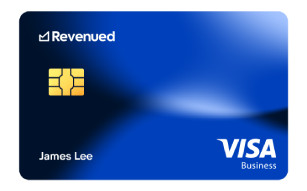Do You Need Good Credit to Open a Business Bank Account?
Do You Need Good Credit to Open a Business Bank Account?
The first thing on a new business owner’s to-do list should be opening a business bank account. An account in your company’s name provides a separation between personal and business finances. It also establishes legitimacy in the eyes of potential customers and creditors.
Most people expect lenders to scrutinize their credit history during the loan application process. Yet what about when you open a business savings or checking account?
You can open a business bank account with bad credit, although a poor score may limit your access to features like overdraft protection or business credit lines.
Separating Business Credit from Personal Credit
When discussing how credit history impacts business types of accounts, it’s vital first to understand the distinction between business and personal credit. Your brand-new business has no credit history of its own. Therefore, a business banking account application will trigger inquiries into your personal financial history — primarily if you operate as a sole proprietor.
As you build your business credit profile, bankers begin relying less on your consumer scores and more on your company’s track record. Maintaining separate bank accounts and credit reports means you can:
- Avoid adverse reporting on your personal credit profile.
- Preserve the way your business score and credit rating look to potential lenders.
- Make bookkeeping easier for you or your CPA when it’s time to pay your business taxes.
- Protect yourself from personal liability.
- Protect your personal assets.
- Improve your business financing and credit opportunities.
Opening a business checking account with bad credit is still possible, and it's a crucial first step toward building credit in your company’s name and separating your personal and business finances. It will give you a central location to pay your bills and business expenses and help you streamline your bookkeeping.
What Are Bankers Looking For?
When applying to open a business bank account with poor credit history, bankers may review a variety of data sources before deciding, including your banking record and credit file.. This can include your ChexSystems profile data and credit history.
ChexSystems and Your Banking History
ChexSystems is a consumer reporting agency that collects data from banks regarding their customers’ activity. Its process is similar to the way credit bureaus collect information from creditors. Instead of late payments and debt to limit ratios, however, ChexSystems reports on your history of bounced checks and overdraft fees.
If you're seeking a business bank account with bad credit, be aware that a negative ChexSystems report could result in denial, though some banks offer no ChexSystems business checking accounts. At that point, you could request a free copy of your ChexSystems report to see the data for yourself. This could help clarify the reason behind the denial.
If you spot incorrect information on your report, you can file a dispute to have that data removed. Once you resolve any outstanding issues or bank debts, you’ll be clear to open a business bank account.
Credit Scores and Reports
Banks and credit unions don’t typically run hard inquiries with credit reporting agencies when evaluating your checking account application. However, they’ll probably perform a soft pull to check out your business and personal credit scores. This will give your banker a stronger sense of your financial picture.
A low credit score to open a bank account might not prevent approval, but it can affect your access to premium features like overdraft protection or linked business credit tools. For example, overdraft protection is a standard service that helps you dodge penalties for non-sufficient funds (or sometimes referred to as NSF’s). If your account balance runs low, shortages can be covered by a savings account or a bank line of credit.
If the bank’s inquiry comes back and deems you uncreditworthy, you may not qualify for overdraft protection or other credit-based features.
The Revenued Business Card and Your Business Bank Account
While you don’t need a perfect score, opening a business bank account with bad credit can be more difficult, especially if you’ve been flagged by ChexSystems or denied a business checking account for bad credit in the past. If you’re concerned about being turned down for a business bank account, shop around for a bank or credit union that doesn’t use ChexSystems.
Once your business bank account is up and running, you could be eligible for a broader range of funding opportunities. This includes the Revenued Business Card which is not a credit card, but instead is a purchase of future receivables utilizing revenue-based financing to provide a prepaid debit card for your business. Despite not being a credit card, the Revenued Business Card can be used for purchases in-store or online similarly to a business credit card.
In order to qualify for Revenued, a business must have at least $20,000 in monthly sales, an average daily balance of $1,000, and carry a negative balance of no more than three days in a month. They must be in business for at least 1 year and maintain a separate business bank account.
Revenued looks at business revenue instead of more traditional factors like a personal credit score or business credit score to determine eligibility. This can make it an excellent option for business owners who have a limited business credit history or a poor or fair personal credit score.
Although there are no draw fees or interest charges with the Revenued Business Card or Flex Line, Revenued does charge a factor rate which may end up being more expensive than a conventional business bank loan. It’s important to weigh the pros and cons when making any financing decision for your business and if your personal credit score or timing are at the top of your list of deciding factors, then Revenued can still be a great option to consider.
Learn more today by emailing info@revenued.com or calling +1-877-662-3489 and see if Revenued is right for you.
IN THIS ARTICLE
RELATED ARTICLES
Revenued Business Flex Line vs Ecommerce Revenue Based Financing
Learn MoreRevenued Flex Line Pricing vs. (MCA): A Comparative Analysis
Learn MoreWhat is My Business’ Credit Utilization Ratio?
Learn MoreWhy is Cash Flow Important to Your Business?
Learn More
Boost your spending power with the Revenued Business Card
Only pay for what you use at gas stations, hotels, supply stores, supermarkets and more.
Take control with the Flex Line
Check your available balance online and request a cash draw with the tap of your finger, anytime.

